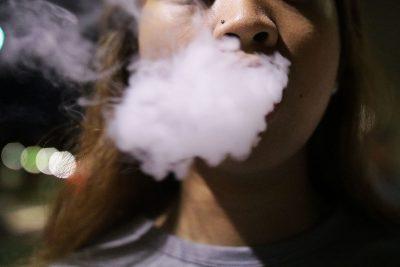
Massachusetts Governor Charlie Baker announced a four month ban Tuesday on the sale of all vaping products — including e-cigarettes and cannabis vaporizers — within the state, declaring a public health emergency amid a nationwide vaping scare.
The ban was almost immediately approved by the state’s Public Health Council and goes into effect immediately, lasting until Jan. 25, 2020. However, the state can choose to extend the ban if they deem it necessary.
It bars all retailers across the state, both physical and online, from selling everything from flavored, non-flavored, and marijuana infused vaping fluid to all vaporizing devices—such as Juuls and cannabis pens.
Since this summer, the Centers for Disease Control has counted over 530 reported cases of vaping-related lung illness, with the Massachusetts Department of Public Health receiving a total of 61 reports from hospitals throughout the state as of Tuesday, according to a state press release.
Of these 61 cases in the state, three were officially linked to vaping by DPH, with the other 58 pending clinical analysis, according to the press release.
Massachusetts is the first state in the U.S. to ban the sale of all varieties of vaping products, while New York and Michigan both enacted bans earlier this month that only covered flavored vaping products.
The City of San Francisco also passed a ban on all vaping products in June — flavored, non-flavored, and cannabis — but their restrictions do not take effect until early next year.
The state DPH will work with municipal boards of health and local law enforcement to implement and enforce the ban, Baker said during his announcement at the Massachusetts State House.
Baker said during the announcment the ban will give scientists time to research why vaping is causing these illnesses, while also allowing state authorities to develop regulations on the vaping industry.
“We as a commonwealth need to pause sales in order for our medical experts to collect informations on what is driving these vaping related illnesses,” Baker said. “We also need to better understand the inherent dangers of both vaping nicotine and marijuana. With all this information we can then develop a set of targeted measures and response.”
Baker said the problem of vaping extends to the state’s children, with 41 percent of all youth in Massachusetts in 2017 reporting that they had tried e-cigarettes and one in five reporting that they vape regularly.
Alicia Casey, co-director of Boston Children’s Hospital’s Interstitial Lung Disease Program, said during the announcement that she has seen an uptick in vaping related illnesses in recent months.
“At Boston Childrens, we have seen multiple teens with chronic day to day symptoms and some becoming more severely ill with acute vaping induced lung injury,” Casey said.
Vaping advocates across the state protested the ban, as they claim banning all e-cigarette products will push people towards cigarettes or untested black market alternatives.
Shaleen Title, a member of Massachusetts’s five-person Cannabis Control Commission, wrote in a tweet that the ban may have unforeseen consequences.
“This is a terrible decision,” Title wrote on Twitter. “Purposely pushing people into the illicit market — precisely where the dangerous products are — goes against every principle of public health and harm reduction. It is dangerous, short-sighted, and undermines the benefits of legal regulation.”






















































































































